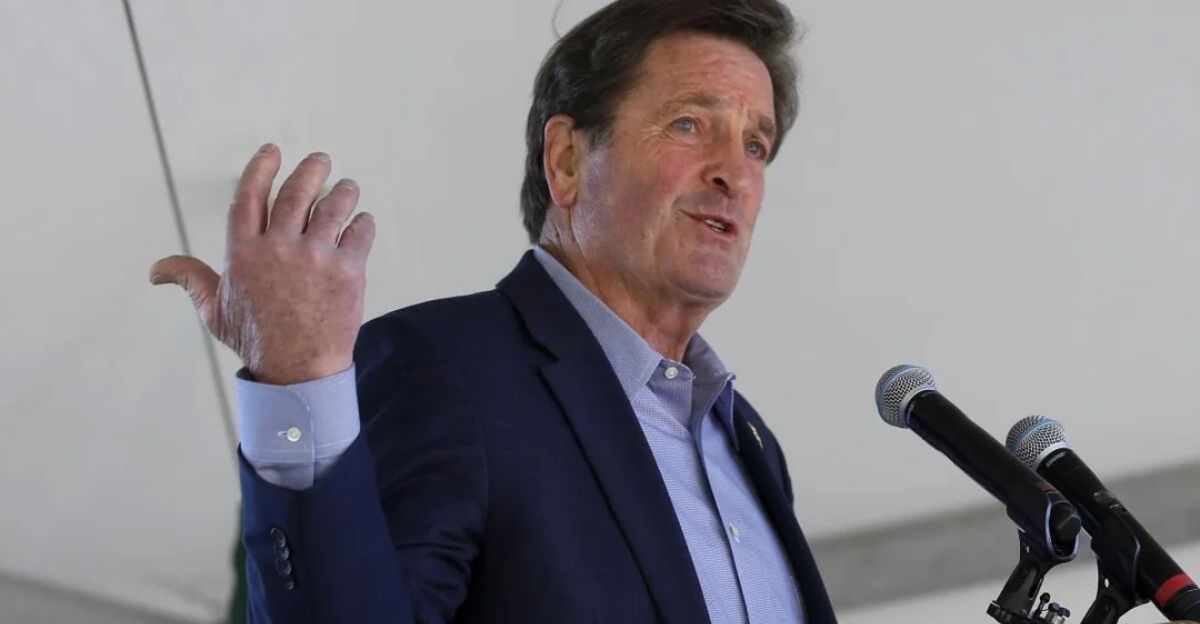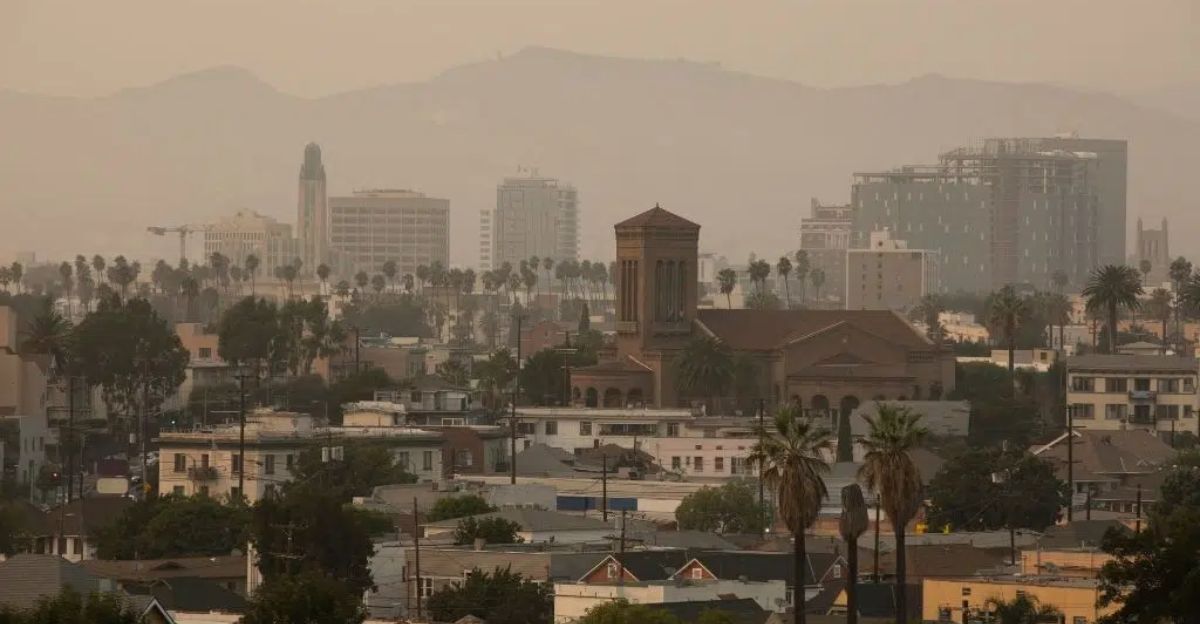
In a stunning reversal, the Environmental Protection Agency has frozen a $19.1 million grant earmarked for community-led environmental projects in North Richmond, California. The funding had been formally approved in January as part of a nationwide climate resilience initiative, but Contra Costa County officials were never officially notified of the suspension.
One project had already begun laying the foundation for a community resiliency center when the money was pulled. Now, construction hangs in the balance. The grant was set to support eight projects under the North Richmond Community Resilience Initiative, developed by local groups aiming to combat climate threats and systemic inequities.
As federal policies shift, community leaders and lawmakers are scrambling to understand the decision and push for the funding’s reinstatement before progress grinds to a halt.
What the $19 Million Was Supposed to Fund

The now-suspended EPA grant was intended to fuel eight projects designed to turn North Richmond into a national model for climate resilience. These included planting shade trees and starting student gardening programs at Verde K-8 school, transforming abandoned Las Deltas public housing into energy-efficient, affordable homes, and launching an e-bike lending program.
Other plans involved home upgrades for better energy use, a Wildcat Creek trail flood prevention effort, and a disaster response hub at Urban Tilth Farm. Watershed management, including tree-trimming and flood mitigation, also made the list.
All projects aimed to boost public health, sustainability, and climate preparedness. With these plans in limbo, local leaders fear the area’s opportunity for transformative environmental investment may vanish unless the grant is restored swiftly.
A Community Center Left in Limbo

Crews had already broken ground at Urban Tilth Farm to build a community resiliency center when the EPA froze the funds. Located at 323 Brookside Drive, the facility was designed to provide up to four days of shelter and care during climate emergencies.
Complete with solar power and HVAC systems, the center aimed to serve residents living next to the Chevron refinery, who regularly endure smoke, industrial emissions, and high temperatures. “The community resiliency center essentially is designed to provide four days of care and shelter, an HVAC system, solar-powered,” explained Adam Boisvert, Education Coordinator at Urban Tilth.
With the foundation nearly complete, the future of the project remains uncertain. “They’re going to finish the foundation, and we’re going to try and figure out what to do next,” he said.
Local Leaders Caught Off Guard by Suspension

Contra Costa County officials say they never received direct notice from the EPA about the grant’s suspension. Instead, they learned of the freeze indirectly through Rep. John Garamendi’s office. “We were never officially notified by the EPA that the grant was canceled,” said County Supervisor John Gioia. “We only found out it was canceled from Congressman John Garamendi’s office.”
According to the county, the EPA website reflected the change in March, but formal communication never arrived. With construction already underway, the timing has left officials and community groups in limbo.
The sudden halt has not only jeopardized current work but also raised questions about the broader implications for federal-local partnerships aimed at tackling environmental challenges in underserved communities like North Richmond.
Congressional Pushback and Legal Questions Mount

In response to the grant’s suspension, Rep. John Garamendi and Rep. Mark DeSaulnier sent a formal letter to EPA director Lee Zeldin, urging the agency to reinstate funding. Their request underscores growing frustration over the lack of communication and transparency.
Meanwhile, legal experts say the federal government may not have had the authority to cancel the grants in the first place. “There is now a court decision which has basically ruled that these grants, and there are 100 of them across the country, were illegally canceled,” Gioia noted.
The controversy has sparked debate about the Trump administration’s rollback of environmental programs and raised concerns over how quickly executive decisions can reverse years of planning, partnerships, and federally approved initiatives without due process.
Community Partners Left Without Resources

The suspended grant was set to support a coalition of North Richmond nonprofits already heavily involved in climate resilience and community health. These partners include Urban Tilth, Richmond LAND, The Watershed Project, Rich City Rides, and the Community Housing Development Corporation (CHDC).
Each group was responsible for a portion of the eight projects, many of which had already moved into active development phases. The sudden funding freeze has left them scrambling for alternatives. Their combined efforts were designed to bring long-term environmental improvements, equitable housing, and sustainable infrastructure to a region historically impacted by industrial pollution.
Without reinstatement, years of groundwork risk being undone, leaving vulnerable neighborhoods without the tools they need to prepare for increasingly frequent and severe climate events.
A Broader Pattern of EPA Rollbacks

UC Berkeley environmental law professor Dan Farber says the North Richmond case is just one piece of a sweeping federal strategy to undo decades of environmental protections. “It has an enormous practical effect, because there are all kinds of projects going on that are just getting halted where they are,” Farber said.
He added that the administration has been targeting a wide range of environmental rules, not just those tied to pollution. Many rollbacks are happening through administrative maneuvers, such as expiration clauses and claims of illegality, without going through Congress or the courts.
This aggressive pace of deregulation has left environmental groups and local governments overwhelmed, as they attempt to defend existing projects and regulatory frameworks that were previously seen as stable.
EPA Faces Major Staffing Cuts

Amid the grant controversy, the EPA announced major layoffs affecting its environmental justice programs. On Sunday, EPA director Lee Zeldin said that 280 employees, primarily from the Office of Environmental Justice and External Civil Rights and regional divisions, will be laid off by July 31.
The agency framed the move as a realignment: “necessary to align our workforce with the agency’s current and future needs and to ensure the efficient and effective operation of our programs.” However, Farber warns that the broader goal may be to hollow out the EPA’s capabilities.
With rumors of a 30–40% staff reduction circulating, environmental advocates fear the agency may no longer be able to carry out core responsibilities, including enforcing protections or funding key community initiatives.
Earth Day Statement Reveals Shift in Priorities

As local leaders fought for reinstatement of the suspended grant, the White House issued an Earth Day message emphasizing its reformed vision for the EPA. The statement highlighted goals such as scaling back wind energy, expanding oil and gas exploration, and opening more federal lands for mineral extraction.
While framed as a modernization strategy, critics argue these moves signal a more profound shift away from environmental stewardship. The administration’s approach relies less on legislative changes and more on executive decisions that bypass traditional oversight. This allows for swift reversals of regulations previously passed through public comment or bipartisan support.
For North Richmond and similar communities, the shift means uncertainty, stalled progress, and greater vulnerability to climate threats.
What Comes Next for Contra Costa and Beyond

Despite the setback, North Richmond’s community leaders aren’t backing down. With support from Congressional representatives and potential legal avenues opening up, there’s still hope that the EPA’s decision will be reversed.
Contra Costa County is weighing its next steps, which may include litigation or appeals through administrative channels. Meanwhile, the community’s unfinished projects serve as physical reminders of what’s at stake. Legal precedent now supports the argument that the grant cancellations were unlawful, giving the county and its nonprofit partners stronger ground to push back.
As the nation watches how these cases unfold, North Richmond will be a bellwether for whether local environmental justice initiatives can survive federal pushback or become casualties of shifting political winds and regulatory rollbacks.
Explore more of our trending stories and hit Follow to keep them coming to your feed!

Don’t miss out on more stories like this! Hit the Follow button at the top of this article to stay updated with the latest news. Share your thoughts in the comments—we’d love to hear from you!







